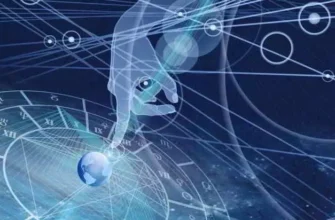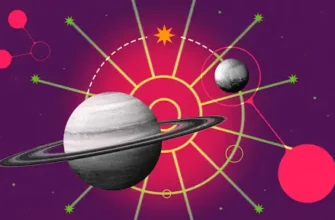Mars (♂) is a fiery, masculine planet that represents strength, ambition, passion, and the drive to act. In astrology, Mars symbolizes raw energy, willpower, courage, and the instinct for survival. It governs the urge to conquer, compete, and assert oneself. Known as the planet of war, Mars is the cosmic force that pushes humanity to take risks, fight for goals, and overcome obstacles. At its lowest vibration, it manifests as anger, conflict, and destruction; at its highest, as courage, initiative, and disciplined action.
Mars is the ruling planet of Aries ♈️ and the traditional ruler of Scorpio ♏️, while it is exalted in Capricorn ♑️. In Roman mythology, Mars was the god of war and bloodshed — a powerful, masculine figure armed with a spear and shield. The deep red color of the planet mirrors the color of blood and the iron-rich Martian soil, connecting the celestial and human through the symbolism of life force and vitality. Among the Roman gods, Mars ranked just below Jupiter and Saturn in importance, revered as the protector and patron of soldiers and victory.
Astronomically, Mars completes its orbit around the Sun in about 687 days, spending roughly 57 days in each zodiac sign. It is the first planet orbiting beyond Earth’s path, making it the first to rise and set independently from the Sun. Mars has two permanent polar ice caps, and during its long winters, parts of its atmosphere freeze into dry ice, demonstrating the planet’s dual nature — fierce yet disciplined, burning yet cold.
In astrology, Mars embodies aggression, action, physical energy, initiative, and drive. It rules sports, competition, leadership, and all dynamic activity. The planet reflects one’s ability to stand up, to fight, to pursue, and to protect. Mars also represents desire — both physical and creative — as well as the courage to face life directly. It is associated with ambition, endurance, and the inner fire that propels achievement.
The ancient poet Manilius described Mars as ardent and intense, calling it the “lesser malefic” for its association with conflict and accidents. In medical astrology, Mars governs the head, muscles, genitals, adrenal glands, and the circulatory and muscular systems. Traditionally, it was linked to the choleric temperament, being hot and excessively dry, and was associated with fevers, wounds, inflammation, and surgical procedures.
In modern astrological interpretation, Mars rules the first house, symbolizing self-assertion and the projection of personal will. Traditionally, it was connected to the third and tenth houses, finding its joy in the sixth house, where effort and discipline meet daily struggle. If Venus represents harmony and attraction, Mars stands for desire, determination, and the power to act. It is the spark that initiates — the masculine principle of passion, purpose, and endurance.
Mars also governs Tuesday, a day of energy and productivity. In many languages, the connection to Mars remains clear — marți (Romanian), martes (Spanish), mardi (French), martedì (Italian). The English word Tuesday comes from “Tīw’s Day,” named after the Old English war god Tīw, equivalent to Mars and to Tyr in Norse mythology. Dante Alighieri associated Mars with the liberal art of arithmetic — the disciplined, methodical side of the planet’s fiery intelligence.
In Chinese astrology, Mars corresponds to the element of Fire, representing passion, dynamism, and adventure. In Hindu astrology, Mars is known as Mangala, one of the Navagraha, symbolizing courage, power, and determination. Whether viewed as a warrior god or a cosmic flame, Mars remains the eternal archetype of drive, vitality, and the bold pursuit of life’s challenges.
The Astrological Significance of Mars
The symbol of Mars is a deformed cross located on a circle, emphasizing that

Survival Instinct
Mars governs the individual’s survival instinct, representing the need to secure more
Action
Mars governs a person’s drive to act, expressing their desires through action.
Ways to lose your temper
Mars is the “God of War”, which means that once a person is threatened or stimulated by the outside world, he will take retaliatory actions. For example, if others express their disagreement, he will easily become angry or
The constellation in which Mars falls: a person’s attitude when angry and how he reacts to external people and things when angry . - The house where Mars falls: It is the area of striving for personal interests or personal dominance.
Competitiveness and ambition
Mars represents a person’s proactive and active nature. Driven by survival
Desire for self-independence
Mars has a desire for self-independence, which prompts individuals to show courage and execution,
- The house where Mars falls: It shows the area where the individual must take the offensive, show
courage and vitality, reveal his potential, and establish self-independence.
Sexual urges
Mars and Venus both rule sexual relationships, but their natures
masculine traits
Mars is a masculine planet, representing a person’s identification with masculinity
- A man’s Mars sign: It represents a man’s attitude of “self-identification”. He must display
the characteristics of the Mars sign to be considered a “man”. - Women’s Mars sign: This is the type of man women admire and yearn for.
When facing this type of man, they are likely to feel a strong sexual attraction and excitement.
The energy that causes disasters
Mars represents the eagerness to satisfy personal desires, often leading to rash and impulsive
- The house where Mars falls: Because of impatience, carelessness, and impulsiveness, problems and troubles in personal
life caused.
Short-term explosive power
Mars governs a person’s energy and explosive power, leading to a desire







